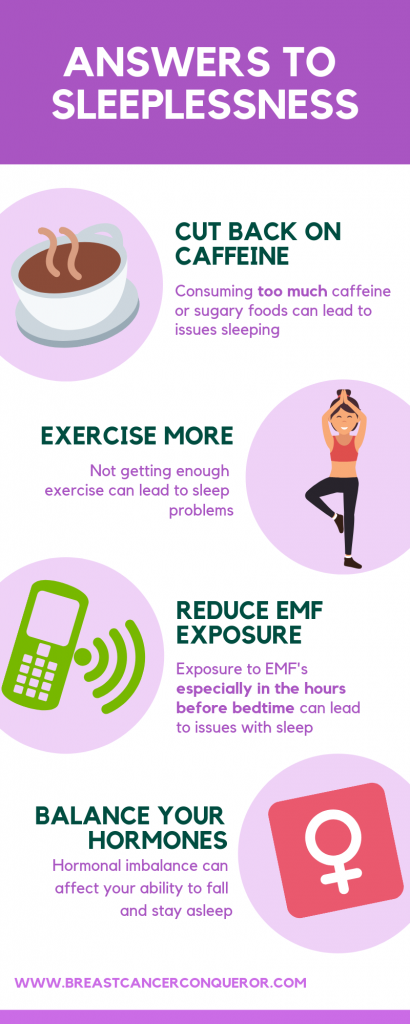
Did you know that lack of sleep can affect your genes? According to a study conducted by Surrey University in England in 2013, just a week of burning the candle at both ends can alter hundreds of otherwise normal DNA expressions in your body and also speed up the growth of cancer cells. The good news is, however, that there are just as many positive benefits to getting the right amount of sleep as there are negative ones from not getting enough.
The Answer to Sleep-Related Problems
If you suffer from insomnia, sleep apnea, or interrupted sleep (also called fractured sleep), you are not alone. Thirty percent of American adults say that they survive consistently on 6 hours of sleep or less.
Hormonal imbalance, too much caffeine or sugar in your diet, not getting enough exercise, and EMF exposure can all contribute to poor sleep. Having an illness also plays a huge role for many. According to a 2004 study, between 30 and 75% of all cancer patients experience insomnia.
Help for Hormonal Imbalance
Many women who have had no problems with the quality or duration of their sleep their whole lives are surprised when they reach perimenopause and menopause. Suddenly they are faced with sleepless nights or waking up in the middle of the night for seemingly no reason. This is because hormonal changes can also affect communication in the brain.
The mechanisms that send chemical messages throughout the brain to regulate physical and emotional responses are called neurotransmitters. Specific neurotransmitters help keep you awake and alert. Likewise, other neurotransmitters put you to sleep and keep you that way throughout the night.
Simply changing key lifestyle and eating habits may turn your sleep around. For example, if you lead a mostly sedentary lifestyle, try adding a little movement into your day. If you drink caffeine or eat sugary foods, try cutting back and see what happens.
Should You Try Supplementation?
Sometimes neurotransmitter dysregulation needs a little help to become balanced again, especially
if chronic stress has been the norm for a while. If this is the case, consider getting your hormone levels tested through saliva
testing. Saliva testing can measure cortisol levels throughout the day, all 3 estrogens, progesterone, DHEA, and testosterone. If you are estrogen dominant, you may have your foot on your accelerator, so to speak, so you need to apply some calming strategies.
1.) Do not watch TV or use your electronics for at least 1 hour before sleep.
2.) Wear light-blocking glasses that filter out the blue, violet, and green light. I like True Dark.
3.) Read a relaxing book, soak in a hot tub with Epsom Salts, or do some mild stretches with deep breathing.
4.) Move all your electronics out of your bedroom or at least place them on Airplane Mode.
Don’t be a statistic! Instead, be proactive when it comes to your health with lifestyle changes and the right tests and supplements for you and your sleep.
Dr. Veronique Desaulniers (“Dr. V”) is the founder of Breast Cancer Conqueror.com and The 7 Essentials System®. This step-by-step guide empowers you with knowledge so you Never Have to Fear Breast Cancer Again! To watch a FREE webinar about the 7 steps for beating breast cancer naturally, Click Here
